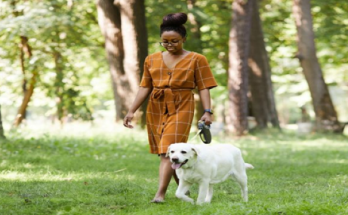If your baby has sensitive skin, eczema, or frequent rashes, you’ve probably found yourself standing in the laundry aisle feeling overwhelmed by choices. Which detergent won’t cause a flare-up? Should you really wash everything separately? “When it comes to caring for babies with sensitive skin, the laundry room feels like ground zero for prevention and getting it right can make the difference between peaceful nights and sleepless, scratchy ones,” comments Catherine Oluwadare, brand manager for Purity & Elizabeth Anne.
For babies with sensitive skin conditions like eczema or dermatitis, clothing isn’t just about staying warm; it’s about avoiding triggers that can cause painful flare-ups. Rough fabrics or clothes washed in strong detergents may irritate sensitive skin, making your laundry routine a crucial part of managing your baby’s comfort.
Tips on how to care for your baby’s sensitive skin from the laundry room:
Choose the right washing formula. When shopping for a washing detergent that is best suited to your baby’s sensitive skin, make sure that your detergent checks the following boxes:
- Fragrance-free
- Dye-free
- Hypoallergenic
- Liquid detergents: liquid products leave fewer residues than powders
Purty & Elizabeth Anne’s Baby Laundry Wash is the perfect choice for babies’ delicate and sensitive skin. This gentle product has been dermatologically and clinically tested for mildness as well as being dermatologist and paediatrician approved. It is also suitable for both handwashing and machine washing.
- Temperature matters. Use the hottest possible water to help kill allergens while being mindful of the fabric care instructions. For most baby clothes, warm water (around 40°C) strikes the right balance between effective cleaning and fabric preservation.
- The double rinse rule. For babies with eczema or severe skin sensitivity, double rinse each load to ensure all detergent residue is removed from the fabric.
- Fabric choices that make a difference. Babies and children with eczema should wear only cotton or other natural fibre clothing next to the skin, except for wool. Cotton clothing is gentle and breathable, making it perfect for sensitive skin.
- Fit and comfort considerations. To prevent eczema flare-ups from rearing their ugly head, avoid tight clothing. The heat that your baby’s body generates always moves up, so proper airflow around sensitive areas is crucial.
- Pre-wash preparation. Before the first wear, all new baby clothes should be washed to remove manufacturing residues, sizing chemicals, and potential allergens picked up during shipping and storage.
- Hand-wash delicate items. It is more suitable to hand-wash pieces of clothing that are delicate, such as those with embroidery, lace, or sensitive fabric, to avoid damage. Use the same gentle, fragrance-free detergent you use for machine washing.
- Test new products. If you switch from a baby detergent, test wash one piece of your baby’s clothing first to check for any adverse reactions before committing to washing entire loads.
- Separate the baby’s laundry. If your baby’s skin is exceptionally sensitive, it may be important to separate your baby’s laundry from your other washing and to keep the loads small to ensure thorough rinsing.
Caring for a baby with sensitive skin can feel overwhelming, especially when it seems like every product and process needs special consideration. But with the right approach to washing and clothing care, you can significantly reduce triggers and help your little one feel more comfortable in their own skin.
Remember that managing your baby’s sensitive skin is often about finding the right combination of different factors rather than a single solution. How you wash your baby’s clothes is just one step in keeping your baby’s skin healthy and irritation-free. However, if you have tried strategy after strategy and your baby is still not experiencing any relief, please consult your paediatrician.
For more information on Purity & Elizabeth Anne, please see Instagram and Facebook




